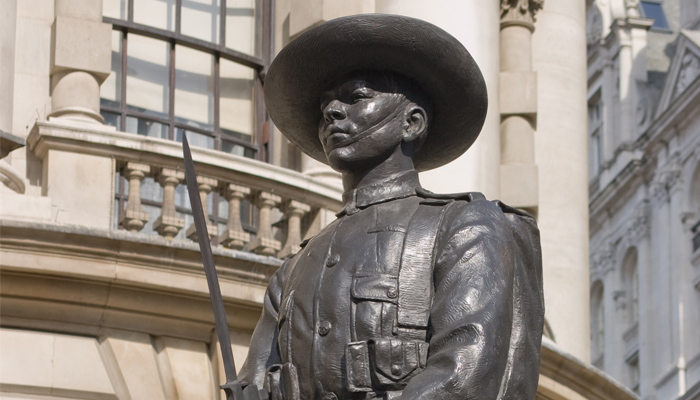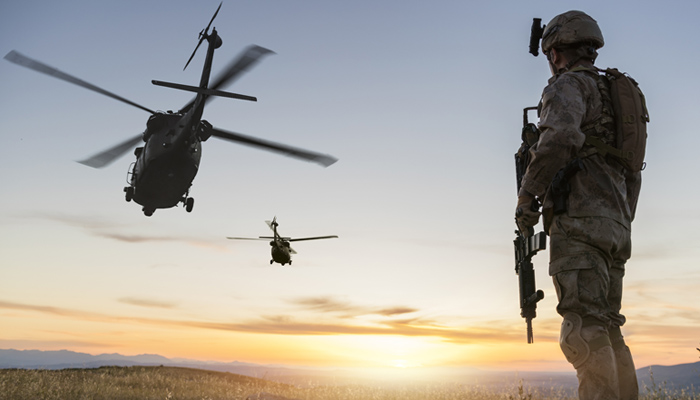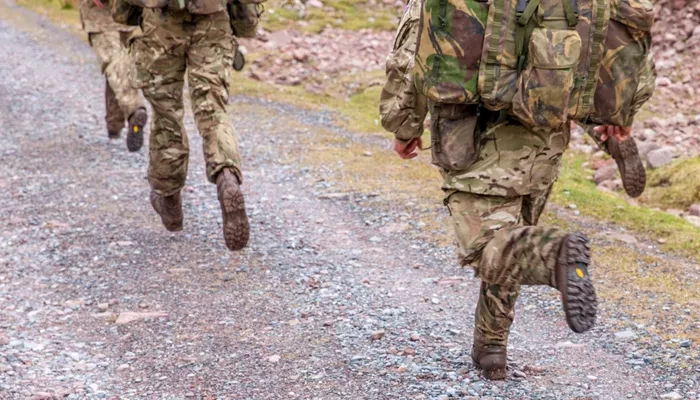What Trades Can You Learn in the Army?
Joining the army doesn’t just provide you with a military career, but also provides an opportunity to learn or enhance specialist and trade skills that can help build your career after you return to civilian life. Furthermore, the range of interpersonal skills you gain in the military will make you highly valuable to employers. Find out some of the most popular trades you can specialise in and the opportunities they provide to build your career after your time in the forces.
When serving in the army, you will have to specialise in at least one trade (of which there are many roles available) as soon as you pass out as a qualified soldier from your military training. Here are just a few of them, which can provide a clear path to successful civilian employment after you leave.
Driver - As a driver in the army you will handle vehicles from basic Land Rovers up to large troop-carrying vehicles. Specialising in this trade will allow you to gain essential qualifications for civilian driver roles, such as the Cat C+E licence. Furthermore, you will gain vehicle maintenance, servicing and inspection skills.
HR or financial professional – If you want to train in specialist skills that will enable you to become a valuable asset in the corporate world after serving, you can join the staff and personnel support branch of the Adjutant General’s Corps, which provide HR, business, admin, secretarial, financial and IT support.
You will learn the clerical and financial techniques used to manage the army’s comprehensive administrative systems effectively, providing valuable experience for civilian life working in the HR or financial fields.
Electrician– As an army electrician, you’ll learn the principles of electrical engineering, wiring systems, electrical technology and power generation, preparing you for a range of roles from your own electrical business to working for transport, construction or industry.
Among your responsibilities will be working with single and three-phase electrical installations, installing underground cables, intruder alarms and fire alarms, and operating power-generation equipment. You can also gain trade qualifications and a Category B driving licence.
Chef – Being a chef in the provides a wide variety of experience of meal preparation in different circumstances, from temporary or speedily erected food preparation areas, to permanent, large-scale kitchens back at base. Learning to prepare, cook and serve food for up to 650 soldiers at a time, in locations all over the world, can prepare you well for working in large and / or high-pressurised civilian restaurants.
Carpenter and joiner–You can become a qualified and highly skilled carpenter and joiner through the forces, with training in both design and construction skills that will enable you to practice your trade in a range of civilian sectors. As an army carpenter or joiner, you’ll learn everything from working from drawings to constructing and erecting scaffolding. You’ll also gain experience in construction work, such as making and installing joints, windows, doorframes, partitions, floors and roofing.
Plumber – Working as a plumber in the forces, you will become a qualified gas engineer while maintaining heating and plumbing at sites all over the world, making you highly employable across a range of sectors. You’ll gain knowledge of everything you need to know, from pipe fittings and central heating, to gas and water supply. You’ll also learn how to create heat loss calculations and technical drawings.
Plant operator mechanic – there are many larger-scale construction tasks involved in army life that provide you with excellent training in operating and maintaining the same earthmoving and construction equipment as on civilian construction sites. You will be trained in how to drive and use these machines to carry out construction work; how to recognise and report equipment faults; and in how to survey and set out earthworks. Additionally you can work to gain a licence to drive Cat C medium and large vehicles of over 3,500kg (with a trailer up to 750kg MAM).
Other transferable employment skills you learn in the military
The wide range of skills possessed by military personnel make them very valuable assets to civilian employers. The work ethic installed in the forces, along with the qualities of leadership, being able to work as part of a team, discipline, maturity and acceptance of responsibility, particularly under pressure, makes them a highly valuable asset. Employers often cite ex-service employees as being particularly flexible, and having a positive attitude.
This means that you are in a strong position career-wise even if you haven’t settled on a specific trade whilst within the forces. While you may, for example, join your chosen industry ten years later with less sector experience, you will have gained a lot of transferrable experience in dealing with pressurised work situations and the value of good team leadership, putting you in a strong position to adapt quickly to new roles.
Military insurance from Towergate
If you choose to pursue a career in the army it is worth investing in military insurance to ensure that your specialised kit and equipment is protected. Visit our military insurance page or call us on 01242 533 784 to speak to an adviser.
About the author
Adam Summersby is a respected leader with 11 years’ varied experience in niche personal and commercial lines insurance, including caravan, site operators and excess reimbursement, with proficiency in leadership, sales and account management.
Date: May 25, 2018
Category: Military













